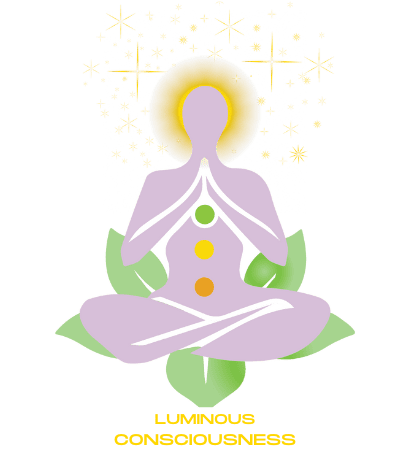Productivity in tech used to mean building awesome things and solving tricky problems. Now, it’s turned into a never-ending grind. The toxic productivity culture is all over developer communities, turning skilled creators into burnt-out, anxious, and disconnected coders. You might see people bragging about working crazy hours or skipping sleep to get just a little more done. This mindset isn’t boosting success; it’s eating away at creativity, well-being, and true progress.

How Toxic Productivity Culture Shows Up in Tech
This kind of culture is sneaky. It’s woven into the memes, the Slack jokes, and the social media threads about “just one more commit before midnight.” Phrases like “move fast and break things” have turned into a badge of honor, even though they often lead to poor planning and prevent real innovation.
Developers get pushed to deliver more, faster, and with fewer resources. There’s constant pressure to pick up side projects, add more opensource contributions, and chase after trendy new frameworks, even if there’s no space for rest. Burnout rates for tech professionals are now through the roof, according to a recent Stack Overflow survey, with more than half of all developers reporting signs of serious exhaustion or disengagement.
There’s also a myth that being a “10x developer” means sacrificing any real life outside of coding. The idea of nonstop grinding is so normalized, it’s easy to forget you don’t actually have to destroy your boundaries just to stay in the game.
Why The Grind Doesn’t Work (and Who It Hurts)
Cranking out code for hours on end sounds productive on the surface. But here’s what I’ve seen: endless hustle almost always leads to diminishing returns. Exhaustion saps creativity and problem-solving. Long-term projects stall or start growing bugs. Teams become less collaborative and way more prone to conflict. The stressful churn just creates more mistakes, then more hours spent fixing them.
Constant hyperproductivity doesn’t just affect your work; it messes with sleep, relationships, and even your sense of self-worth. Imposter syndrome grows (“If I’m not shipping every day, do I even belong here?”), leading to anxiety and a never-ending chase for achievement. I’ve known brilliant developers who left the industry entirely after they burned out, convinced they just couldn’t “keep up.”
What’s wild is this productivity obsession isn’t even helping companies long term. Research out of Stanford and MIT has shown that productivity drops sharply after about 50 hours per week. Faster isn’t better if it pushes teammates out the door or leaves projects abandoned due to burnout.
From Hustle to Conscious Productivity: What Actually Works
There’s a better way. Conscious productivity changes the focus from grinding to working smarter and working with intention. This doesn’t mean being lazy; it means paying attention to the quality of your output, the purpose behind your tasks, and the sustainability of your energy.
- Set Clear, HumanSized Goals: Break huge projects into smaller, achievable milestones that fit with your actual schedule and capacities.
- Prioritize Ruthlessly: Not every ticket matters right now. Separate the urgent from the important and make peace with leaving some things for later.
- Focus Deeply (and Step Away Often): Use short sprints of meaningful work, then fully disconnect to recharge. This helps your brain consolidate learning and spot creative solutions.
- Build in Reflection: Take time to look back at what’s working and what’s draining you. This can happen with a weekly self-check or through group retros.
- Say “No” Without Guilt: Your time outside work is just as valuable as your output. Learn to protect evenings and weekends, even if the culture around you hasn’t caught up yet.
When your productivity is conscious and sustainable, you don’t just avoid burnout; you actually get more meaningful work done, stay sharper, and have space to try new things, like transitioning to an AI consulting side gig.
Recognizing When You’re Stuck in Toxic Productivity
It’s easy to miss the signs that either workplace expectations or your own habits are sliding into toxic territory. Here’s what’s worth watching out for:
- You’re Always “On”: If you feel bad when you’re not coding, or can’t unplug at night, take notice.
- Chronic Fatigue: Coffee stops making a dent, your hobbies fade away, and your memory gets foggy.
- Poor Work Quality: Your code is full of little mistakes, or you’re making the same fixes over and over.
- No Joy in Win: You stop feeling excited when you finish a big feature; it’s just another box on an endless list.
- Isolation: You stop reaching out to your team, or you avoid asking for help because you “should” be able to do it all.
If any of this sounds familiar, you’re not alone, and you don’t have to fix it solo. Sometimes, just naming what’s going on is a really important first step toward change.
Common Excuses for Overworking (and What to Do Instead)
The pressure to keep overdelivering doesn’t usually come out of nowhere. Here are some stories I hear a lot (and what usually helps flip the script):
- I need to always be the smartest in the room.
Truth is, tech moves so fast that nobody can master everything. Picking a specialty and teaming up with others makes you more effective and less stressed. - If I stop grinding, I’ll fall behind.
Learning works way better when you’re well-rested and curious. Try setting regular times for skill development rather than working late every night. - Management expects it.
Open conversations about burnout and boundaries are gaining traction, especially with trends like the anti-hustle movement. You’re not the only one feeling the pressure. - All the best devs I know hustle nonstop.
Actually, a lot are quietly managing their time and mental health behind the scenes, or they’ve taken breaks you never saw on Twitter or LinkedIn.
My Path Away from the Productivity Trap
I hit this wall myself a few years ago. Between sprint deadlines, side hustles, and imposter syndrome, I was headed straight for major burnout. It took talking to a mentor, and later, working with a coach, to realize that working late and deprioritizing family or health didn’t make me a better developer. It made me a less creative one.
Switching from grind mode to conscious productivity gave me the energy (and confidence) to finally launch my own AI consulting work. I set boundaries, focused on meaningful outcomes, and allowed myself downtime on weekends for the first time in years. The results were pretty clear: better clients, more interesting projects, and a steadier mental state.
The journey isn’t always easy, but it’s been worth it. I’ve seen friends and colleagues make similar changes and get a new perspective on their entire tech careers. If anything, small steps like setting up after-work screen time limits or connecting with other professionals outside of standard “hustle” circles can make a big difference for your overall wellbeing. And if you’re thinking about planning a bigger switch up in your career, those boundaries are even more important—they’ll help you avoid trading one grind for another.
Practical Steps for Building a Healthier Tech Career
If you’re tired of the toxic productivity spiral, there are simple ways to pull back while still getting great work done and even prepping for your next growth move, like launching an AI consulting business:
- Audit Your Week: Take a few days to log your time honestly. Where are you leaking hours? Is something actually urgent, or is it just showing up because it feels familiar?
- Block Real Breaks: Step away from your screen after deep work sprints. Even a walk or quick chat counts.
- Connect With Others: Reach out to fellow devs, mentors, or a coach who gets it. You’re definitely not the only one tired of the grind.
- Experiment With New Routines: Try a fourday workweek, deep work mornings, or “no meeting” blocks. Adjust until you find a rhythm that leaves you energized instead of depleted.
- Plan the Next Move Intentionally: If you want to branch into AI consulting, don’t try to cram it into overstuffed weeks. Schedule dedicated thinking and upskilling time—without guilt—for the transition.
To add, small daily habits like journaling your progress or making time for creative coding outside of work can also step up your engagement and help you see how much you’re truly growing. Regularly connecting with professional communities or support groups can give you a sense of encouragement and make the process much less isolating. Remember, it’s not about taking on more; it’s about getting intentional with what actually matters for your goals and wellbeing.
Feeling Stuck? Coaching Can Help You Break the Cycle
Moving from hustle habits to conscious productivity is tough to figure out alone. That’s where life coaching comes in, especially if you’re thinking about breaking out and launching your own consulting business. I work with developers and tech professionals like you to:
- Untangle work habits that aren’t serving your goals
- Design practical routines that balance learning, shipping, and self-care
- Map out a personalized strategy for starting an AI consulting side hustle, without adding more stress
- Stay accountable to the life you want, not just the pace that’s expected
If you’re ready for a healthier relationship with productivity and to start building a future on your terms, book a coaching session. You can absolutely succeed without burning yourself down to the ground, and I’d love to help you get there.
Frequently Asked Questions
Doesn’t working more hours mean I’ll get ahead faster?
Usually, putting in excessive hours only works for a short time. Over time, you get less efficient, creative, and happy. Most studies show that happier, more balanced developers have better long-term outcomes.
How do I push back against toxic expectations at my current job?
Start by setting small boundaries; log off when your day ends, skip noncritical weekend tasks, and chat honestly with your manager about focus and burnout. Change takes time, but there’s a growing movement in tech to support better mental health.
Can I really transition to something like AI consulting without working myself into the ground?
Yes. Making a switch up works best when you’re intentional with your time, clear on your priorities, and realistic about what you want out of your week. Coaching or joining a peer group can help you stay on track without burning out.
